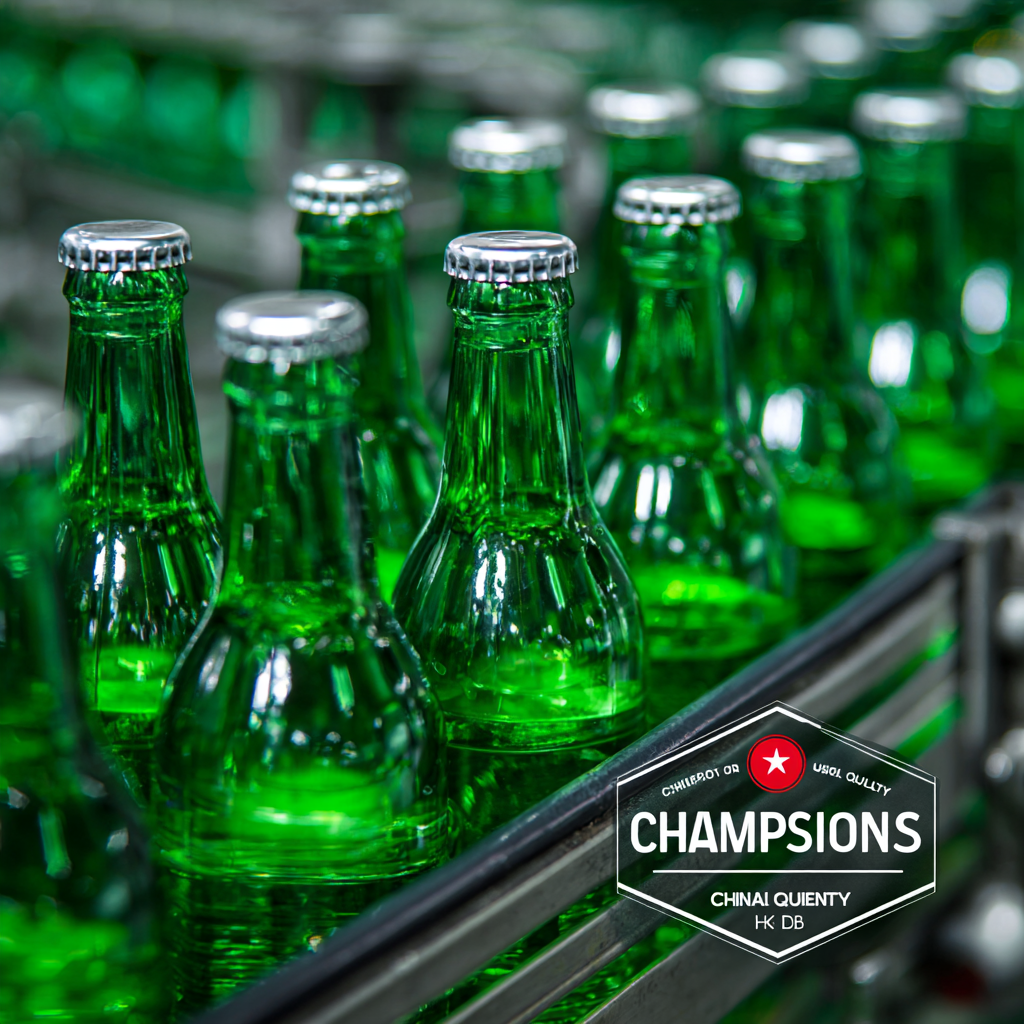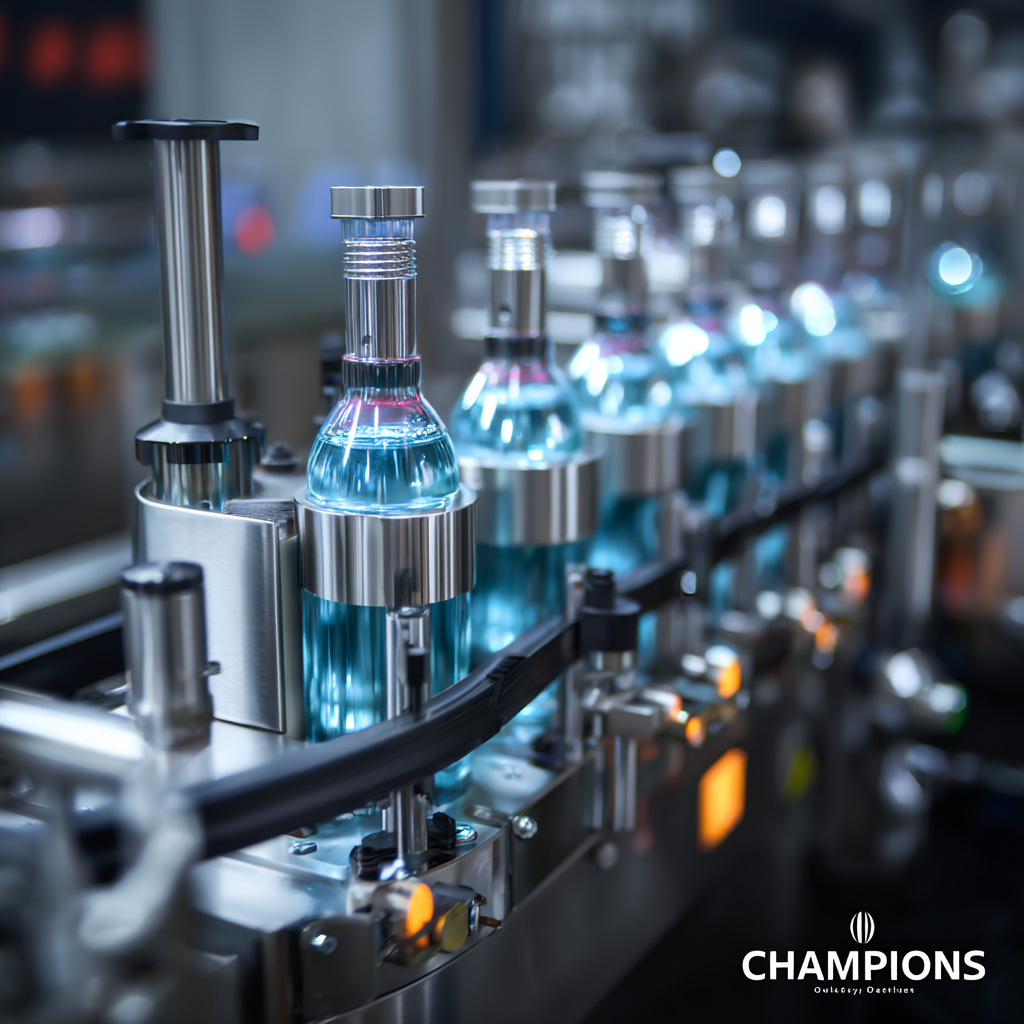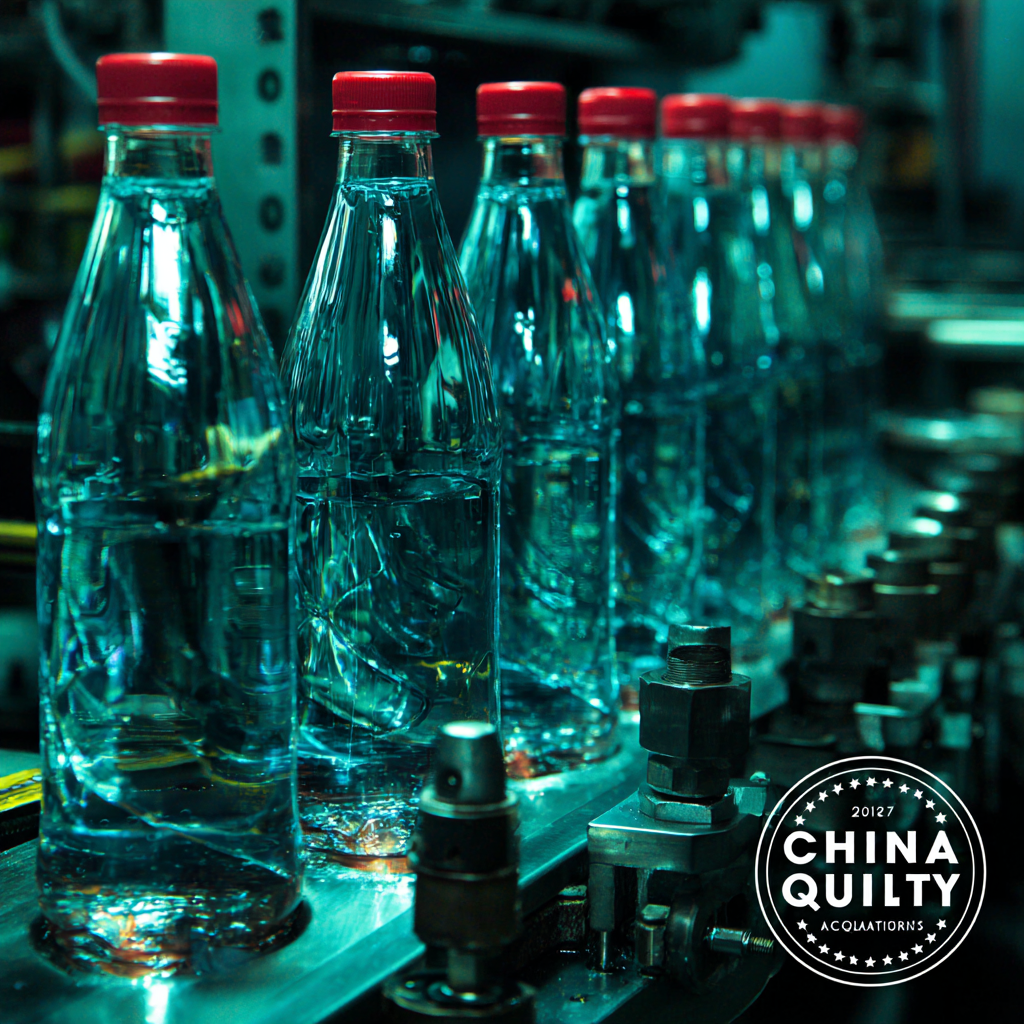In recent years, the bottling machine sector has witnessed transformative innovations that are reshaping the beverage industry landscape. According to a report by MarketsandMarkets, the global bottling equipment market is projected to reach USD 25.34 billion by 2025, driven by the rising demand for packaging solutions and efficiency in production lines. As China emerges as a powerhouse in manufacturing advanced bottling machines, it is not only meeting domestic needs but also becoming a significant player in global exports. The adoption of smart technologies, such as IoT and automation, is expected to enhance the productivity and precision of bottling processes, addressing the industry's evolving requirements. This blog will explore the 2025 technological trends in bottling machines and how these advancements position China as a leader in this competitive market.

When searching for quality suppliers in the bottling machine industry, several key considerations come into play. First and foremost, it's essential to evaluate the manufacturer’s reputation and history. An established supplier with a proven track record is more likely to provide high-quality machines that meet industry standards. Look for reviews, client testimonials, and case studies that highlight the supplier’s capabilities and reliability in terms of both technology and service.
Another crucial factor is the adherence to international quality certifications. Suppliers who comply with ISO standards or other internationally recognized certifications demonstrate a commitment to quality and safety in their production processes. Furthermore, it's worth exploring their after-sales support and warranty services. A supplier that offers robust support and maintenance options can significantly reduce downtime and enhance the longevity of the equipment. By considering these aspects, businesses can ensure they partner with suppliers who not only provide exceptional bottling machines but also contribute to their operational success.
In the competitive landscape of bottling machinery, China's manufacturers have established a reputation for quality by adhering to strict international certifications and standards. Evaluating these certifications is crucial for businesses looking to invest in reliable machinery that meets global expectations. Many Chinese bottling machine manufacturers are compliant with ISO 9001, which ensures quality management systems are in place, facilitating consistent production and delivery of high-quality products.

Furthermore, certifications such as CE, UL, and FDA approvals signal that a manufacturer meets safety and performance standards essential for international markets. By focusing on these certifications, Chinese companies not only enhance their credibility but also streamline their entry into various global markets. This commitment to quality demonstrates that they are not merely exporters of machinery, but instead champions of innovation and reliability, making them formidable players in the global bottling sector.
In the competitive landscape of bottling equipment, technological innovation plays a pivotal role in enhancing quality and efficiency. Recent market analysis indicates that the global bottling equipment market is projected to reach $19.9 billion by 2026, growing at a CAGR of 5.9% from 2021 to 2026. China's premier bottling machines are at the forefront of this evolution, driven by advancements in automation and precision engineering. With manufacturers adopting smart technology, including IoT and AI, the ability to monitor and maintain optimal production conditions has never been more achievable, significantly reducing downtime and waste.
Moreover, the emphasis on quality assurance has prompted Chinese companies to invest heavily in research and development. A report from the China Beverage Industry Association reveals that approximately 80% of domestic bottling machinery firms are focusing on innovation to elevate their product standards. This commitment not only enhances the performance and reliability of bottling lines but also places Chinese manufacturers in a strong position to meet the stringent quality requirements of international markets. As a result, China is now a leading exporter of high-quality bottling machines, catering to a diverse range of industries from beverages to pharmaceuticals, shaping the future of global manufacturing standards.
The demand for Chinese bottling machines is significantly influenced by the broader global market trends, particularly in the liquid filling machines sector. The global liquid filling machines market is projected to grow from $6.82 billion in 2025 to $10.39 billion by 2032, marking a robust CAGR of 6.2%. This growth is indicative of the rising need for efficient and high-quality bottling solutions, highlighting China's role as a leading manufacturer catering to diverse industries.
Moreover, the bottled water market plays a pivotal role in driving this demand. With the market size expected to escalate from USD 378.29 billion in 2025 to an impressive USD 674.8 billion by 2033, exhibiting a CAGR of 7.5%, the need for advanced bottling technologies becomes critical. This surge is also complemented by the bottled water packaging segment, anticipated to grow from USD 110.36 billion in 2024 to USD 204.26 billion by 2033. Such growth in the bottled water segment creates opportunities for Chinese bottling machines that meet the rigorous standards required for production and safety. The alignment of market needs with quality machinery continues to position China as a champion in the bottling sector globally.
This chart illustrates the growing demand for Chinese bottling machines in the global market, showcasing export values from 2018 to 2022.
In the ever-evolving bottling equipment sector, performance metrics play a crucial role in selecting potential suppliers. According to a recent industry report by MarketsandMarkets, the global bottling equipment market is projected to reach $18.9 billion by 2027, growing at a CAGR of 5.2%. This growth highlights the importance of evaluating suppliers' performance to ensure they meet the high demands of production efficiency and quality.

Key performance indicators (KPIs) such as production speed, energy efficiency, and maintenance downtime must be prioritized when assessing suppliers. For instance, a study by Grand View Research indicates that manufacturers focusing on energy-efficient machines can reduce operational costs by up to 30%, making them a more sustainable option in the long run.
Furthermore, aspects like supplier lead time and after-sales service are essential metrics, as they directly impact production continuity and reliability. By leveraging these performance metrics, businesses can forge partnerships with suppliers that not only excel in technology but also align with overall operational goals.
Accutek Packaging Equipment Companies, Inc. stands as one of the premier privately owned packaging machinery manufacturers in the United States.

Sign up for all the news about our latest arrivals